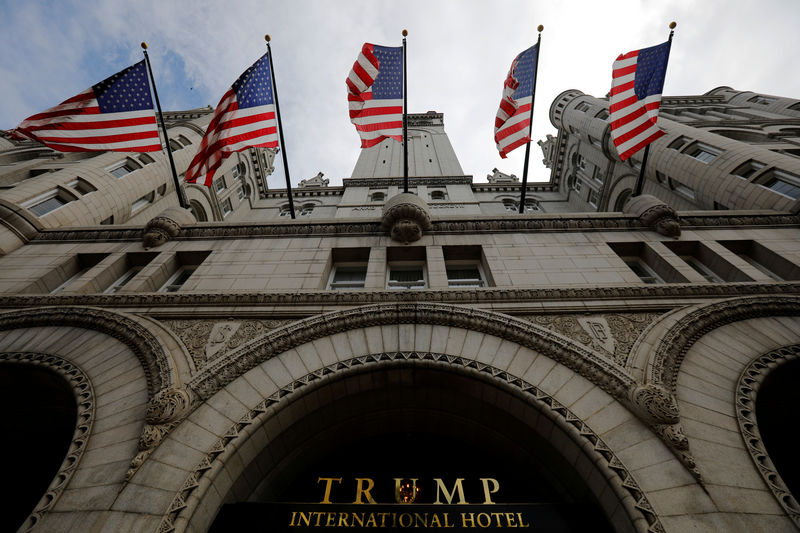By Jan Wolfe
(Reuters) - A three-judge U.S. appeals court panel signaled sympathy toward President Donald Trump on Tuesday in his appeal in a Democratic-backed lawsuit that accuses him of violating anti-corruption provisions of the U.S. Constitution with his Washington hotel.
The judges on the Richmond, Virginia-based 4th U.S. Circuit Court of Appeals indicated they may dismiss the lawsuit filed against the Republican president in June 2017 by the Democratic attorneys general of Maryland and the District of Columbia.
Maryland-based U.S. District Judge Peter Messitte last year allowed the lawsuit to proceed, a ruling that Trump appealed to the 4th Circuit. All three of the judges who heard the appeal were appointed by Republican presidents. Trump's lawyers told the appeals court that Messitte, a Democratic appointee, should have dismissed the case.
The judges raised concerns about Messitte's findings on the Constitution's "emoluments" clauses, which prohibit a president from accepting gifts from foreign countries and U.S. states without congressional approval.
Trump opened the Trump International Hotel, just blocks from the White House, shortly before he was elected in 2016. Unlike past presidents, he has retained ownership of numerous business interests, including the hotel, while serving as president.
Since his election, the hotel has become a favored lodging and event space for some foreign and state officials visiting the U.S. capital. The lawsuit alleges that, in failing to disengage from the hotel, Trump has made himself vulnerable to inducements by foreign governments seeking to curry favor, violating the Constitution.
The Trump Organization, the president's company now run by his sons, has pledged to donate to the U.S. Treasury profits that its hotels make from foreign governments. The company has reported making such donations, while also saying it is "impractical" to require customers representing foreign countries to identify themselves.
In his ruling, Messitte embraced a broad definition of emoluments. Messitte said the provision encompasses any "profit, gain or advantage" received "directly or indirectly" from a foreign government, U.S. state government or federal agency.
The appeals court judges indicated that Messitte's definition was too broad. Judge Dennis Shedd said Messitte's definition could deter from public service "anybody who has grown something successfully or has business interests."
Judge Paul Niemeyer said requiring the president to divest his financial interest in the hotel would not remove the Trump name from it, and foreign officials would still use it.

The attorneys generals said in a joint statement they "will keep fighting to stop the president's daily violations of our nation's original anti-corruption laws, because Americans should never have to wonder if the president is working on their behalf or in his personal financial interest."